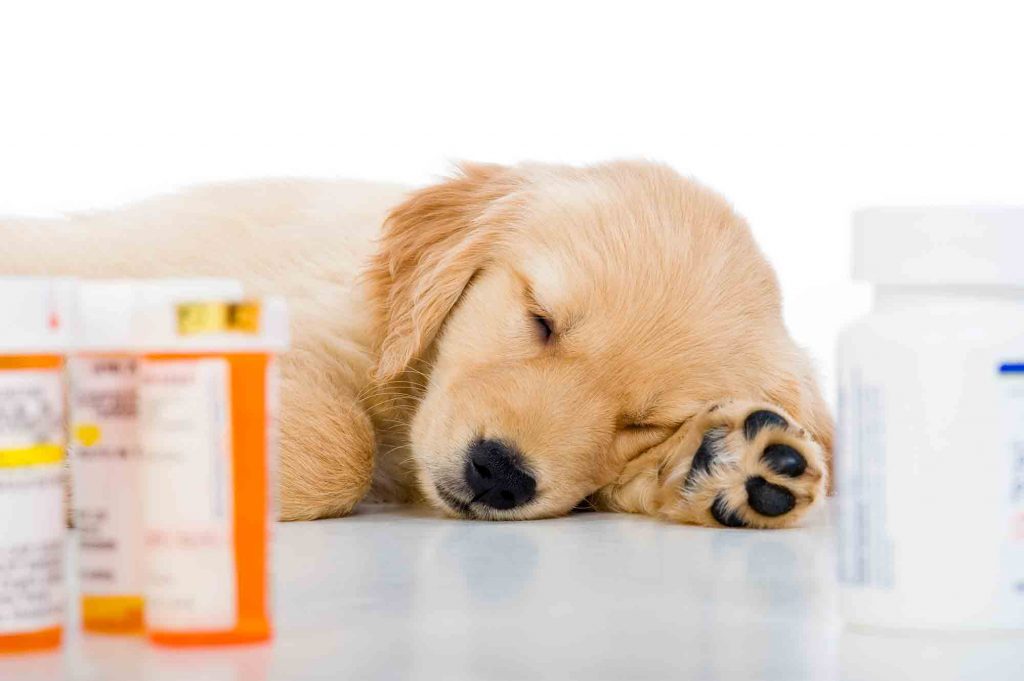Pet Toxins in the Medicine Cabinet
 If you live with a pet, it’s likely you have to be more observant of what ends up on the floor or anywhere within your pet’s reach. Much like a toddler, our furry friends have a way of exploring the world with their mouths, and things we assume would be unappetizing may not be off-limits at all.
If you live with a pet, it’s likely you have to be more observant of what ends up on the floor or anywhere within your pet’s reach. Much like a toddler, our furry friends have a way of exploring the world with their mouths, and things we assume would be unappetizing may not be off-limits at all.
According to the Pet Poison Helpline, over half the calls they receive each year relate to human medications that pets have ingested. Over-the-counter and prescription medications can range from mildly harmful to life threatening. Because these meds can be found in many homes, the team at Dupont Veterinary Clinic wants to remind pet owners to be cautious when it comes to these everyday pet toxins.
5 Common Pet Toxins
Human medications can be super helpful and can alleviate everything from the common cold to chronic pain. But what helps us may mean trouble for our four-legged friends. Here are some common pet toxins you might find in a purse, kitchen, bathroom cabinet, or bedside table.
- NSAIDS (non-steroidal anti-inflammatories) – When you have a headache, you probably reach for ibuprofen, aspirin, or another popular brand of NSAIDs, but these meds are also dangerous to our pets. When ingested, symptoms range from digestive problems to kidney or liver failure.
- ADD/ADHD medication – Adderall, Ritalin, and Concerta are all used to treat Attention Deficit Disorder and Attention Deficit-Hyperactivity Disorder. Toxicity can be severe and includes tremors, seizure, and cardiovascular problems.
- Acetaminophen – Products that contain acetaminophen, like Tylenol, are very dangerous to pets. When ingested by dogs, it can cause liver failure. In cats, it can cause changes to red blood cell count, which can impede your cat’s ability to breathe and hold oxygen.
- Antidepressants – There’s been a surge of new antidepressants available, which is one reason we’ve seen an increase in pet poison emergencies over the past few decades. When ingested, these drugs can cause several neurological problems in pets, such as seizures, as well as vomiting, diarrhea, fever, drooling, and changes to respiration and blood pressure.
- Benzodiazepines – Sleep aids like Ambien and anti-anxiety medications, such as Xanax, are harmful to pets. They cause increased sedation and restlessness, a marked drop in blood pressure, agitation, weakness, and collapse.
Other common medications that are known pet toxins include cholesterol medications, anticonvulsants, and opioids. If you suspect your pet ingested any medication they shouldn’t, please contact us immediately and call the Pet Poison Helpline.
Remember, using human medications on your pet must always be done under the supervision of a veterinarian. Your pet’s health, size, species, and a number of other factors plays heavily into how your pet will respond, so never use human meds without instruction from the Dupont team.
For more information about pet toxins, please call us!
